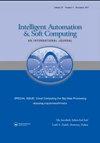Fusion-Based Supply Chain Collaboration Using Machine Learning Techniques
IF 2
4区 计算机科学
Q2 Computer Science
引用次数: 82
Abstract
Supply Chain Collaboration is the network of various entities that work cohesively to make up the entire process. The supply chain organizations’ success is dependent on integration, teamwork, and the communication of information. Every day, supply chain and business players work in a dynamic setting. They must balance competing goals such as process robustness, risk reduction, vulnerability reduction, real financial risks, and resilience against just-in-time and cost-efficiency. Decision-making based on shared information in Supply Chain Collaboration constitutes the recital and competitiveness of the collective process. Supply Chain Collaboration has prompted companies to implement the perfect data analytics functions (e.g., data science, predictive analytics, and big data) to improve supply chain operations and, eventually, efficiency. Simulation and modeling are powerful methods for analyzing, investigating, examining, observing and evaluating real-world industrial and logistic processes in this scenario. Fusion-based Machine learning provides a platform that may address the issues/limitations of Supply Chain Collaboration. Compared to the Classical probable data fusion techniques, the fused Machine learning method may offer a strong computing ability and prediction. In this scenario, the machine learningbased Supply Chain Collaboration model has been proposed to evaluate the propensity of the decision-making process to increase the efficiency of the Supply Chain Collaboration.使用机器学习技术的基于融合的供应链协作
供应链协作是由各种实体组成的网络,这些实体紧密地工作以构成整个过程。供应链组织的成功依赖于整合、团队合作和信息沟通。每天,供应链和商业参与者都在一个动态的环境中工作。他们必须平衡相互竞争的目标,例如过程健壮性、风险降低、脆弱性降低、真实的财务风险,以及针对及时和成本效率的弹性。供应链协作中基于共享信息的决策构成了集体过程的背诵和竞争力。供应链协作促使企业实施完善的数据分析功能(如数据科学、预测分析和大数据),以改善供应链运营,并最终提高效率。仿真和建模是分析、调查、检查、观察和评估现实世界工业和物流过程的强大方法。基于融合的机器学习提供了一个平台,可以解决供应链协作的问题/限制。与经典的概率数据融合技术相比,融合机器学习方法具有较强的计算能力和预测能力。在这种情况下,提出了基于机器学习的供应链协作模型来评估决策过程的倾向,以提高供应链协作的效率。
本文章由计算机程序翻译,如有差异,请以英文原文为准。
求助全文
约1分钟内获得全文
求助全文
来源期刊

Intelligent Automation and Soft Computing
工程技术-计算机:人工智能
CiteScore
3.50
自引率
10.00%
发文量
429
审稿时长
10.8 months
期刊介绍:
An International Journal seeks to provide a common forum for the dissemination of accurate results about the world of intelligent automation, artificial intelligence, computer science, control, intelligent data science, modeling and systems engineering. It is intended that the articles published in the journal will encompass both the short and the long term effects of soft computing and other related fields such as robotics, control, computer, vision, speech recognition, pattern recognition, data mining, big data, data analytics, machine intelligence, cyber security and deep learning. It further hopes it will address the existing and emerging relationships between automation, systems engineering, system of systems engineering and soft computing. The journal will publish original and survey papers on artificial intelligence, intelligent automation and computer engineering with an emphasis on current and potential applications of soft computing. It will have a broad interest in all engineering disciplines, computer science, and related technological fields such as medicine, biology operations research, technology management, agriculture and information technology.
 求助内容:
求助内容: 应助结果提醒方式:
应助结果提醒方式:


